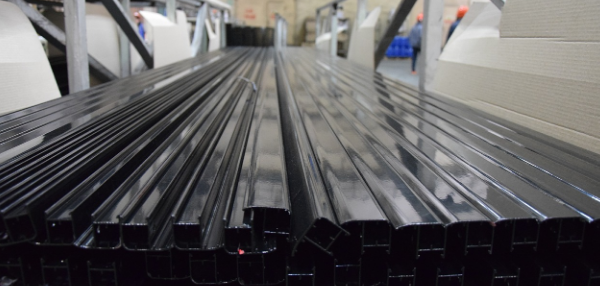When it comes to window air conditioners, the choice of materials used in their construction significantly affects their efficiency, durability, and cost. One critical component that often sparks debate is the type of metal used in the condenser and evaporator coils: copper or aluminum. If you’re considering purchasing an LG window air conditioner, you might be curious about which metal is used in their design and how it impacts the unit’s overall performance. This article will explore the materials used in LG window air conditioners, focusing on the advantages and disadvantages of copper and aluminum coils.
Copper vs. Aluminum: What’s the Difference?
Before diving into the specific materials used in LG window air conditioners, it’s essential to understand the differences between copper and aluminum when used in HVAC systems.
- Thermal Conductivity: Copper is known for its excellent thermal conductivity. It transfers heat better than aluminum, which means air conditioners with copper coils tend to be more efficient in heat exchange, thus cooling the air faster.
- Durability: Copper is more durable and less likely to corrode compared to aluminum. While both materials are subject to wear and tear, copper coils tend to last longer in harsher environments.
- Cost: One of the biggest differences is the price. Copper is significantly more expensive than aluminum, which means air conditioners with copper coils are generally pricier.
- Weight and Flexibility: Aluminum is lighter and more flexible than copper, making it easier to mold into various shapes. This is an important consideration for manufacturers when designing compact window air conditioners.
Materials in LG Window Air Conditioners
LG, being a renowned brand in the HVAC industry, uses both copper and aluminum in its air conditioning units, depending on the model and its specific use case. Historically, most air conditioning units, including LG’s, used copper for both the condenser and evaporator coils due to copper’s excellent heat exchange properties. However, in recent years, the trend has shifted towards using aluminum or a combination of both metals.
1. LG’s Use of Copper Coils
Copper coils are still preferred in some high-end LG window air conditioners due to their superior thermal conductivity. These models tend to offer more efficient cooling and are particularly popular in regions with high ambient temperatures, where rapid cooling is a necessity.
The advantages of copper coils in LG air conditioners include:
- Higher Efficiency: Copper’s superior heat transfer ability ensures quicker and more efficient cooling.
- Longevity: These units tend to last longer and are less prone to corrosion, especially when used in humid climates.
- Easy Maintenance: Copper coils are easier to repair, as they can be soldered, making maintenance less complicated and costly.
2. LG’s Use of Aluminum Coils
In an effort to reduce manufacturing costs and make air conditioning units more affordable, many LG window air conditioners now feature aluminum coils. Aluminum’s lower price makes it an attractive choice for more budget-friendly models. However, this doesn’t necessarily mean a decrease in performance; LG has worked to enhance the efficiency of aluminum coils through innovations like micro-channel heat exchangers.
Advantages of aluminum coils include:
- Lower Cost: Aluminum is significantly cheaper than copper, which reduces the overall cost of the air conditioner.
- Lightweight Design: The use of aluminum allows LG to create more compact and lightweight units, which are easier to install and fit into smaller spaces.
- Corrosion Resistance: While aluminum is generally more prone to corrosion than copper, modern LG units often come with protective coatings to enhance the durability of aluminum coils.
Copper-Aluminum Hybrid Solutions
Some LG window air conditioners utilize a hybrid approach, combining both copper and aluminum in the coil systems. These models aim to strike a balance between cost, efficiency, and durability. For example, you might find a unit with a copper condenser coil and an aluminum evaporator coil, optimizing the strengths of both materials.
Performance and Efficiency: Which is Better?
The performance of an air conditioner largely depends on how efficiently it can transfer heat, which in turn affects its cooling capacity. Copper, with its superior heat transfer capabilities, generally provides better performance in extreme conditions. If you’re living in an area with high temperatures or need your air conditioner to cool a room rapidly, an LG window air conditioner with copper coils might be your best bet.
On the other hand, if you’re looking for a cost-effective solution for moderate climates or occasional use, aluminum coil-based models are perfectly capable of providing adequate cooling. Advances in technology have enabled manufacturers like LG to make aluminum coils more efficient, closing the performance gap between the two materials.
Environmental Considerations
In addition to performance and cost, environmental considerations also play a role in material selection. Copper mining and production are more energy-intensive than aluminum, which makes aluminum a more environmentally friendly choice in terms of raw material extraction. However, because copper coils tend to last longer and are easier to recycle, they may have a longer life cycle and less environmental impact over time.
Conclusion
So, do LG window air conditioners use copper or aluminum? The answer is that it depends on the model and its intended use. LG offers a range of window air conditioners that use either copper, aluminum, or a combination of both in their coils. If you’re looking for a high-performance unit with excellent cooling capabilities, you might want to opt for a model with copper coils. However, if affordability and lightweight design are more important to you, LG’s aluminum coil-based air conditioners are a great option.
In either case, LG continues to innovate, ensuring that whether you choose copper or aluminum, your air conditioner will be built to last and perform efficiently. Always consider the specific cooling needs of your environment, budget, and long-term maintenance when choosing the right material for your LG window air conditioner.
